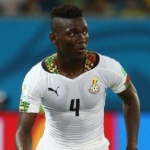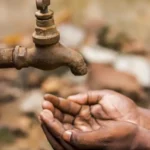
For me, it goes back to the 2007 U-17 World Cup in Korea.
Opare was unstoppable. Electric. The kind of full-back who looked like he could run for days. Real Madrid Castilla signed him straight after the tournament, and he even came close to making a senior-team debut under Juande Ramos. He was set to fill in for an injured Sergio Ramos, until injury hit him too. The chance never came.
In a way, that moment set the tone for his career, highs followed almost immediately by lows, a story of near-misses and “what ifs.”
He missed AFCON 2008 after picking up an injury in the Black Stars’ pre-tournament camp in Dubai.
He eventually returned to the national set-up with the U20s, but by then Samuel Inkoom had taken the right-back spot and excelled at the U20 AFCON in Rwanda, which Ghana won. Opare became second choice as the team went on to lift the World Cup in Egypt.
His move to Standard Liège in 2010 produced some of his best club football. By 2013, after being an unused substitute at AFCON 2012, he was primed to become Ghana’s first-choice right-back for AFCON 2013, only for another injury two months before the tournament to rule him out. Harrison Afful stepped in, and Opare’s window closed again.
The next three years took him to Augsburg, Lens and Beşiktaş, where injuries limited him to just 17 appearances between 2015 and 2017.
Through all that, the national team provided brief relief. He was selected for the 2014 World Cup and started the opening game against the USA. But Ghana lost, Afful came in for the match against Germany, performed brilliantly, and Opare slipped out of the squad once more.
Then came what could have been his true peak, the 2017/18 Bundesliga season.
Augsburg had taken a chance on him during a second spell at the club, offering him a one-year contract. He repaid that faith by playing the best football of his career. By January, Augsburg offered him an extension. At the same time, Schalke, a big club at the time, were circling and Opare, legally free to talk, explored the interest.
What followed was dramatic.
Augsburg released a strongly worded statement accusing him of violating the club’s values and “repeatedly lying.” They terminated his contract and asked him to leave immediately. His agent fired back, calling the club petty and unprofessional. While the war of words raged, Opare’s career took the hit. The Schalke move collapsed, and he spent the rest of the season banished from the first team.
He later returned to Belgium with Royal Antwerp and then Zulte Waregem, but by then Ghana had largely moved on.
Opare’s career was defined by moments that never quite clicked, many entirely beyond his control. He can retire proud of what he achieved, but anyone who watched him at his best knows the truth, he could have been so much more.
And I am sure even he would admit it.
We can sit and dissect the choices and turning points, should he have gone to Real Madrid, should he have accepted Augsburg’s offer, and it is fair to ask those questions. But perhaps, for Opare, this was the journey written for him. To arrive at this point alive, healthy, and with a career to look back on is still glory to God.
He made us dream with that electrifying pace and those lung-bursting runs up and down the right flank.
Enjoy your retirement, Daniel. If for nothing at all, I will never forget that second-half performance against Germany’s U17.
And neither will Toni Kroos.

